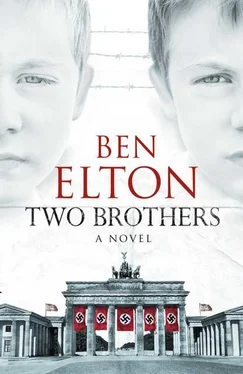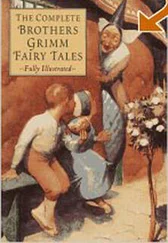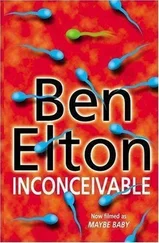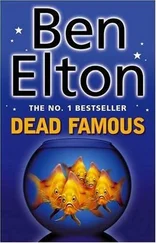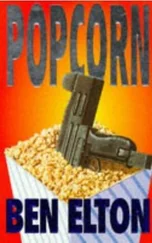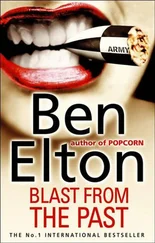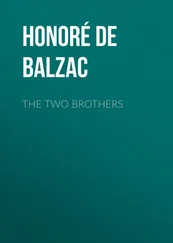Two cats. Two chicks. Two chairs.
‘No. They’re free,’ Stone said.
The cats sat on the chairs and the chicks sat on the cats. One of the couples had a set of bongo drums and a battered school notebook. Stone suspected that they were hoping later to luck in to the dregs of the audience and offer up a bit of rhythmic poetry. He would not be sticking around for that.
The band began to assemble to polite applause and much worthy nodding of heads. The cats at Stone’s table clearly wanted to clap and nod but it was difficult with chicks on their knees. They had to reach all the way around the girls’ woolly-covered waists to get their hands together, which of course made nodding almost impossible as their faces were in the back of their girls’ jumpers. Pretty soon the chicks gave it up and went to stand at the back. Stone doubted whether they had been much into the music anyway. Jazz seemed to have become mainly a boys’ thing. That was another strange development. It had never been that way in his father’s time. Back then the girls had loved their jazz. They were the jazz babies after all, they defined the 1920s. According to his father the clubs had been completely packed with them, shaking and shimmying, flashing their big round Betty Boop eyes and pouting bee-stung lips.
Every one a heartbreaker, or so his dad used to say.
His mother always raised her eyes at that.
Stone had been too young to see for himself of course. By the time he and his brother were old enough to think about going to clubs, the Nazis had long since banned ‘nigger’ music, as they called it, and they wouldn’t have been allowed in anyway. Wolfgang would not have been allowed to play. Jewish musicians were allowed only to perform to Jews. And all the audiences at the Jewish Kulturbund seemed to want to hear was Mendelssohn. Perhaps because it reminded them that they had once been German.
The trumpet guys had appeared on stage. Unusually tonight there were two of them. Sipping their beer, exchanging a word or two. Warming up their instruments, running rags through the tubes, diddling the keys. Blowing on their fingers. Stone half closed his eyes and tried to see his father. He must have looked much as these guys did, polishing, diddling. Blowing on his fingers.
That was why Stone came, really. He liked the music well enough, but what he really came to do was half close his eyes and try to see his father. And once he had got a fix on that, put his brother in the picture too. Just as they had always planned.
All through their childhood together, on the countless mornings they had woken up to the sound of Dad coming home, they had whispered and plotted, dreaming that one night the two of them would sneak in and see him play. They would stand together at the back of one of those magical places their parents called clubs and share in their father’s secret world.
They never did, of course.
But when Stone sat alone in those little London pubs watching a vision of his father through tobacco smoke, whisky haze and his half-closed eyes, he always had his brother there beside him, just like they had planned it when they whispered together, lying in their cosy beds, in their little room, in the apartment in Berlin.
Tubby, the leader, walked on stage and introduced the band.
‘We’re going to warm up with some trad,’ Tubby announced, ‘just to keep the chill out.’
They did The Sheik of Araby . That one had been new when his father was starting out. Fresh in from the USA.
Stone smoked his Luckies, sat beside his brother and watched his father play.
A Very Proper Little Girl
Berlin, 1926
WOLFGANG PUT DOWN his coffee cup, took up his pen and forced himself to begin.
Music Tutor seeks Pupils. Piano and all other instruments a speciality .
There. The first sentence. Done. He put down his pen.
‘Shall I make some more toast?’ he said, turning to Frieda.
‘Wolf! You’ve hardly even started!’
‘All right! All right!’
He stared at the paper for a moment or two and then showed her his single line.
‘What do you think so far?’
‘I don’t think you can say all instruments are a speciality,’ Frieda replied. ‘I mean, everything can’t be a speciality, can it? No matter how good you are.’
‘You see ! I told you this wouldn’t work.’
‘Wolf! You haven’t tried at all.’
‘Because my heart isn’t in it. Why don’t you write it?’
‘Because I’m darning.’
They were still in bed. It was a Sunday morning. What should have been the best day of the week. So peaceful. Coffee, toast. Frieda stitching socks, Paulus on the rug reading. Otto biting the heads off his toy soldiers. And he had to write this stupid advert.
He chewed his pen in moody silence.
Specializing in all instruments?
All instruments equally special?
You name it, I can play it?
‘Maybe I should just stick to piano,’ he said. ‘That’s all anyone ever wants their little buggers to learn anyway.’
‘Whatever you think. Just get on with it.’
He hated the idea of having to teach music.
And he particularly hated the idea of teaching music to children. But he knew from friends who had been forced into the same grim career compromise that that was where the work was.
‘Of course it’ll be kids,’ he said grumpily. ‘Adults are mature enough to know they’re shit at music. You have to teach children to understand that they can’t play.’
‘ Please try not to be so negative, Wolf,’ Frieda said.
‘Well, that’s really what teaching music is about, isn’t it? I mean, ninety-nine per cent of the time? The long torturous process of revealing to the student that they are complete crap and will never be able to play anything more than O Tannenbaum . Teacher and student just waiting it out week after week after week until finally the penny drops and the student gives up, never to think about music again until they force it on their own equally talentless kids.’
‘Wolf! Shut up! Either write the advert or don’t.’
‘I’m just being honest, that’s all.’
He had enough trouble trying to get his own kids to pick up an instrument, let alone anyone else’s. He could scarcely get Paulus and Otto to even listen to anything decent. He strongly suspected he was the father of a couple of Philistines. The only jazz they seemed to like was ragtime, and at very nearly seven they really ought to have got a bit beyond that.
‘Are you sure they weren’t both adopted?’ he whispered occasionally to Frieda.
Which she did not find funny at all.
Wolf was a professional musician. Not some glorified nanny.
It was the government’s fault, of course. Stresemann and that whole dull Social Democratic crowd with their boring stability and prudence. What was becoming of the country? It was a disgrace! Even in Berlin, in the heart of the youngest, wildest, most hedonistic and avant garde metropolis on the planet, things had calmed down to an alarming degree. There was still club work at weekends but the weekdays were dead.
‘People have stopped dancing,’ Wolfgang moaned. ‘Three years ago I had my pick of twenty gigs a day. Now I’m fighting top side men for pfennigs. Guys who have really got it are playing piano in fleapits to the Keystone Cops! It’s a criminal waste of talent. God, I miss the good old days.’
‘What?’ Frieda said, focusing on threading a needle. ‘You mean revolution and inflation?’
‘Yes! Exactly, Fred! That’s exactly what I mean. Cataclysmic national disaster! That’s what a city needs to make it swing. Three years ago when the country was completely knackered, bank clerks and shop girls were dancing crotch to crotch into the small hours! Drinking themselves insane, snorting cocaine and slipping off to screw in the toilets! Jazzing it up like there was no tomorrow because they didn’t think that there was going to be a tomorrow. Suddenly they’ve turned into their parents. It’s a disgrace.’
Читать дальше
